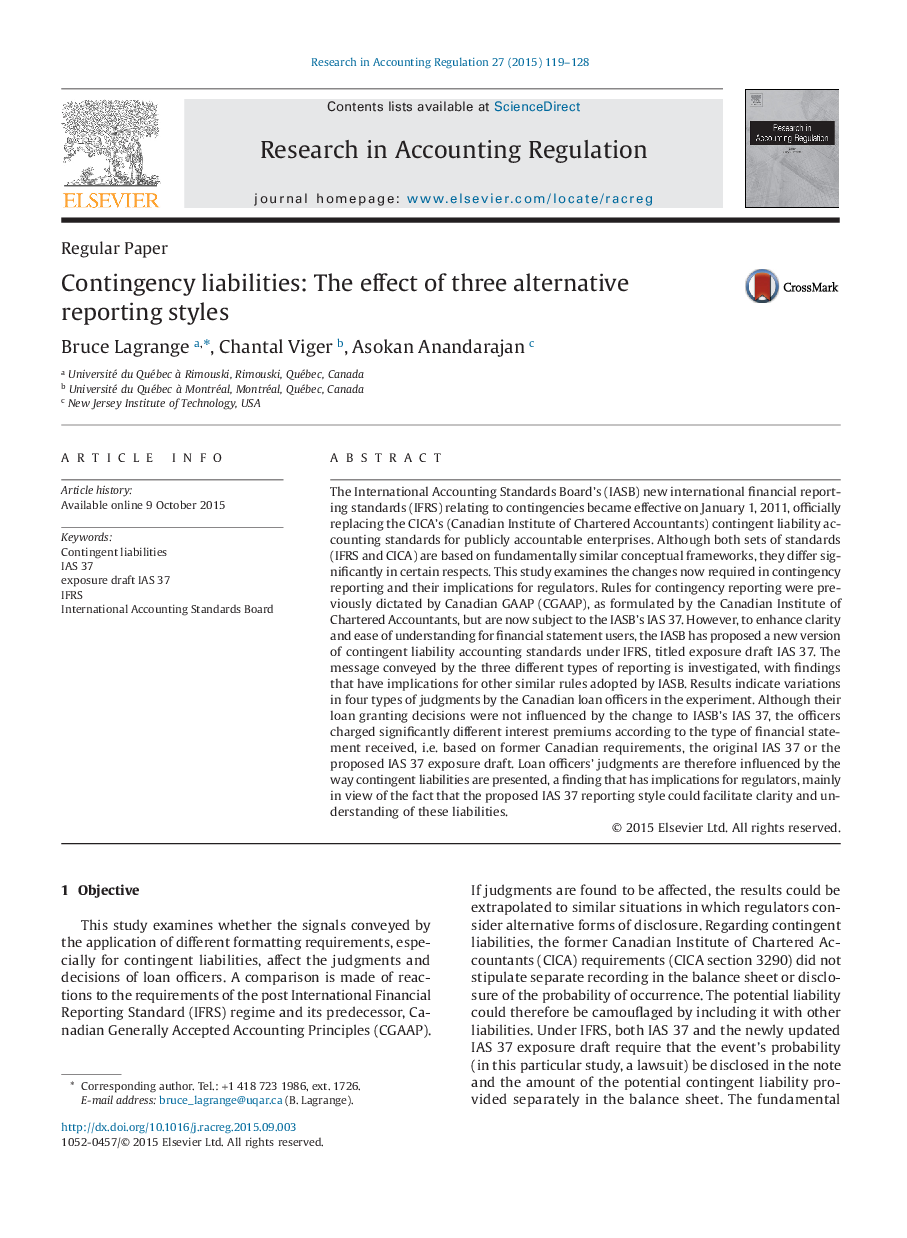| Article ID | Journal | Published Year | Pages | File Type |
|---|---|---|---|---|
| 1006580 | Research in Accounting Regulation | 2015 | 10 Pages |
The International Accounting Standards Board's (IASB) new international financial reporting standards (IFRS) relating to contingencies became effective on January 1, 2011, officially replacing the CICA's (Canadian Institute of Chartered Accountants) contingent liability accounting standards for publicly accountable enterprises. Although both sets of standards (IFRS and CICA) are based on fundamentally similar conceptual frameworks, they differ significantly in certain respects. This study examines the changes now required in contingency reporting and their implications for regulators. Rules for contingency reporting were previously dictated by Canadian GAAP (CGAAP), as formulated by the Canadian Institute of Chartered Accountants, but are now subject to the IASB's IAS 37. However, to enhance clarity and ease of understanding for financial statement users, the IASB has proposed a new version of contingent liability accounting standards under IFRS, titled exposure draft IAS 37. The message conveyed by the three different types of reporting is investigated, with findings that have implications for other similar rules adopted by IASB. Results indicate variations in four types of judgments by the Canadian loan officers in the experiment. Although their loan granting decisions were not influenced by the change to IASB's IAS 37, the officers charged significantly different interest premiums according to the type of financial statement received, i.e. based on former Canadian requirements, the original IAS 37 or the proposed IAS 37 exposure draft. Loan officers' judgments are therefore influenced by the way contingent liabilities are presented, a finding that has implications for regulators, mainly in view of the fact that the proposed IAS 37 reporting style could facilitate clarity and understanding of these liabilities.
